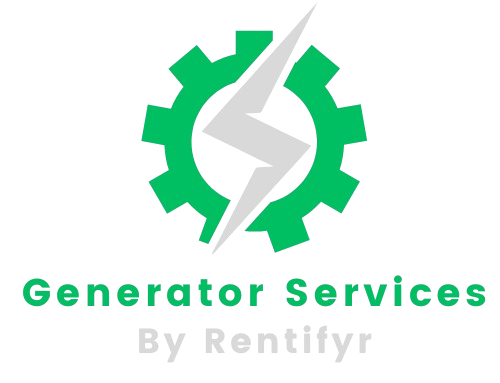Renting a generator can be a smart move for temporary power needs. But with so many options, how do you make the right choice? This guide will walk you through the key factors to consider, helping you find the perfect generator for your needs. Whether you’re powering a construction site, backing up your home, or running an outdoor event, our generator rental services can provide the right solution for you.
Assessing Power Needs
First, figure out how much power you need:
- List all equipment you’ll power.
- Find the running and starting watts for each item.
- Add up all running watts.
- Identify the highest starting watts.
Your generator should handle the total running watts plus the highest starting watts. Add 20% for unexpected needs.
For a detailed guide on sizing, check out our article on how to determine the right size generator for your needs.
Rental Duration Considerations
How long you need the generator affects your options:
- Short-term (1-7 days): Good for events or brief outages.
- Medium-term (1-4 weeks): Ideal for construction projects.
- Long-term (1+ months): Best for extended projects or backup power.
Longer rentals often have better rates but may need scheduled maintenance. Ask about flexible rental periods.
Evaluating Site Conditions
Your site impacts generator choice:
- Space: Is there room for the generator and fuel storage?
- Access: Can a truck deliver the generator easily?
- Noise rules: Are there local noise limits?
- Weather: Will you need to protect the generator?
Always place generators on flat, dry ground.
Choosing Generator Type and Size
Pick based on your needs and site:
- Portable generators: Good for smaller needs and moving around.
- Stationary generators: Best for bigger power needs or longer use.
- Single-phase vs. three-phase: Depends on your equipment.
Remember, bigger isn’t always better. An oversized generator wastes fuel and money.
Fuel Considerations
Your fuel choice affects costs and ease of use:
- Diesel: Efficient for long runs, widely available.
- Petrol: Good for smaller generators, easy to find.
- Propane: Burns clean, but may give less power.
Think about fuel efficiency and how often you’ll refuel. For more on fuel types, see our article on how fuel type impacts your rental decision.
Maintenance and Support Requirements
Understand what’s included:
- Regular maintenance: Who does it?
- Emergency help: Is there 24/7 support?
- Training: Will they show you how to use it?
Clear communication with your rental company is key.
Understanding Rental Costs
Rental costs include more than daily rates:
- Base rental fee (daily, weekly, or monthly)
- Delivery and pickup charges
- Fuel costs (if not included)
- Possible overtime fees
Ask about all costs upfront to avoid surprises.
Environmental and Safety Factors
Consider the generator’s impact:
- Emissions: Check local rules.
- Noise: Look at quiet models for noise-sensitive areas.
- Safety features: Ensure proper grounding and weatherproofing.
Always follow safety guidelines in the operator’s manual.
Evaluating Rental Companies
Choose a good rental company:
- Check online reviews.
- Ask about their maintenance practices.
- Ensure they offer support throughout your rental.
For more on what to expect from rental companies, read our article on typical generator rental agreements.
Conclusion
Renting a generator involves thinking about power needs, rental time, site conditions, and more. By carefully looking at these factors, you can get the right generator for your needs, avoiding both power shortages and wasted capacity.
FAQs
- How much power do I really need?
It depends on what you’re powering. Add up the watts of all equipment, then add 20% for safety. - What if my power needs change during the rental period?
Discuss this possibility with your rental company. They may offer options to switch generators if needed. - Are there any hidden costs I should be aware of?
Ask about fuel costs, delivery fees, and any potential overtime charges. Get all costs in writing before you rent.
Remember, the right generator rental can make your project run smoothly. Take time to think about all these factors, and don’t hesitate to ask questions. Your rental provider is there to help you make the best choice.
